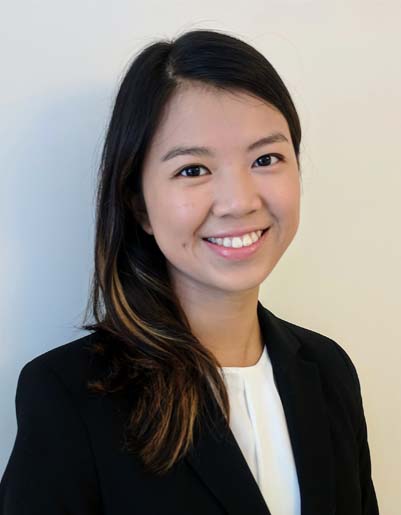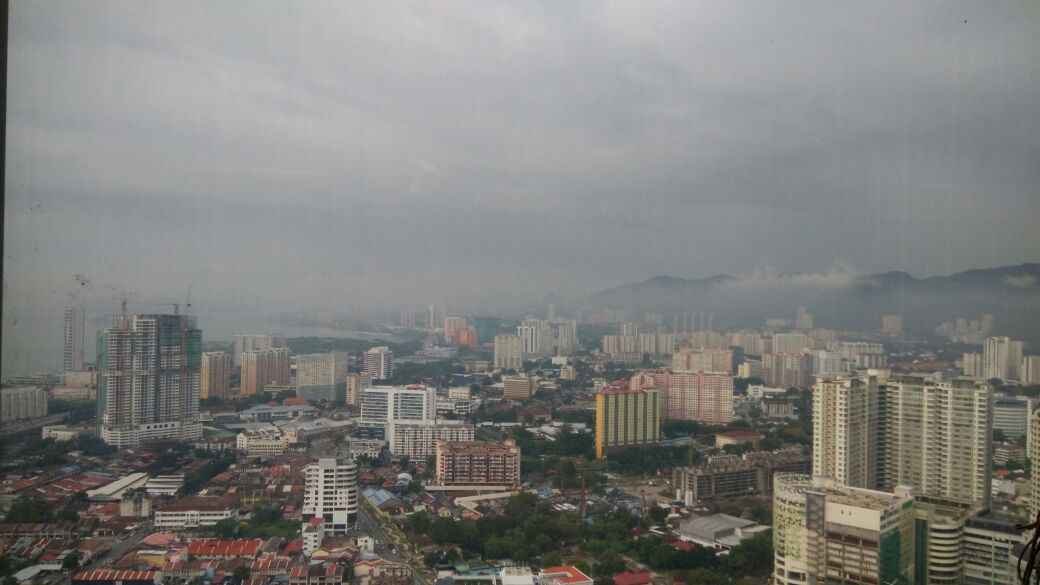Photo credit to People’s Movement to Stop the Haze
FELICIA LIU - PM HAZE INTERVIEW
1. Can you tell us more about People's Movement to Stop Haze (PM Haze) and the work that your organisation does?
In 2014 and 2015, Singapore experienced severe haze episodes. Back then, there was little awareness of sustainable palm oil and no supermarket products were labelled as sustainable or RSPO-certified. We collaborated with WWF Singapore and the Singapore Institute of International Affairs on a campaign called 'We breathe what we buy' to raise awareness of the link between palm oil production and haze, and call on consumers and businesses to support sustainable palm oil.
In 2016, we saw our first success. We found out some suppliers could provide RSPO-certified cooking oil to Singapore and by the end of the year, we had certified sustainable palm oil (CSPO) cooking oil in our supermarkets aisles. However, the main buyers of palm oil in Singapore are restaurants rather than individual households. A survey we conducted found that more than 90% of food outlets in Singapore were using palm oil, but none of them were using CSPO. This motivated our Go Haze Free campaign, encouraging restaurants to choose CSPO to help fight the haze. This received very positive support and we saw the first few restaurant switch to CSPO in 2017.
2. Malaysia and Indonesia combined produce 93% of the world's certified sustainable palm oil, yet awareness of sustainable palm oil amongst consumers in these regions remains low. What action needs to be taken to drive more responsible consumption?
The role of PM Haze is to raise individual awareness and spur individual action. It is important work, but over the years we've learnt that relying on NGO or individual action is not enough. We can't expect consumers to stand up and push for companies to join RSPO in just one day. NGOs campaigning and raising awareness is just one piece of the puzzle, support from governments to endorse certified sustainable palm oil standards is also required. Compared to the government, our leverage is limited.
Governmental leadership is the first step. RSPO was mostly set up by companies and they have not tried hard enough to get governments on board. The fact that it is a voluntary scheme is a problem. Governments must 'set the tone' and send a strong signal to businesses.
The next step is to harmonise all existing standard to make it easy for consumers to know exactly which standard they need to look out for. The most authoritative form of harmonisation is government endorsement.
3. Whose responsibility is it to drive the palm oil debate?
What matters is how you manage the debate, who is involved in the debate, and how you ensure the debate is constructive. Ultimately, we want different stakeholders to make an informed choice.
Owing to the scope of our work, we can only speak from a Singaporean perspective. In Singapore, palm oil can be perceived as unhealthy. As a result, some businesses don't want to advertise their use of palm oil, even if it has been sustainably produced and is RSPO-certified.
When we talk to consumers about palm oil, most of them aren't aware of their impact on deforestation, fires or biodiversity. As an NGO, our responsibility is to speak to different stakeholders, make them aware of the impact of their decisions and help them make more informed decisions.
4. From an air pollution perspective, what are the key changes needed for a sustainable industry?
When it comes to tackling air pollution, fire prevention is the only solution and the focus should be on campaigning against planting on peatland.
Governments need to lead the effort and address the issues of peat plantation that are most relevant to them. For example, the Indonesian anti-bribe agency is a good step forward to stamp corruption that allows for a blind eye to be turned on unsustainable practices. The key to sustainability is a well-governed industry.
Additionally, we should be more supportive of smallholder farmers rather than putting all the blame on them. Smallholder farmers are economically vulnerable and are the first people who suffer from air pollution. Their plantation is usually their only source of income, and they have to be educated about the dangers of using fire and planting oil palm on peat. They need to be given the financial support, knowledge and skills to start haze-free alternatives such as sago or other peat-friendly products.
At the moment, there are schemes such as the Fire Free Alliance that rewards farmers when their plantation doesn't burn for a year. These initiatives must be taken on by both governments and big agribusiness companies.
Finally, we need better science. PM Haze visits plantations and installs canal blocking, but we sometimes face inefficiencies. For example, the blocks break easily, because we don't know the hydro system well enough. We need a better understanding of how the hydro system works to ensure effective fire prevention .
5. What would you like to see as one of the outcomes of this year's RT?
PM Haze speaks from a consumers' perspective. To facilitate more conscious purchasing decisions, we would like to see a harmonisation of certification standards.
We would also like to see a simplification of the certification process for small businesses. They play a big role on the B2C front and should not be neglected.
Finally, we hope the conversations will focus on supporting smallholders, which requires strong collaboration between governments and the industry. We hope participants of RT16 will go home and put pressure on their government to acknowledge the current gaps in increasing uptake of certified sustainable palm oil and become advocates for sustainability.




